Many people assume that eating late at night will automatically lead to weight gain. While it is true that overeating or indulging in high-sugar and high-fat foods before bed can hinder your health goals, not all nighttime snacking is bad. In fact, choosing the right foods in moderate amounts can actually support your metabolism, stabilize blood sugar levels, and help you sleep better. Here are nine late-night snack options that are not only satisfying but also beneficial for your metabolic health.
1. Greek Yogurt with Berries
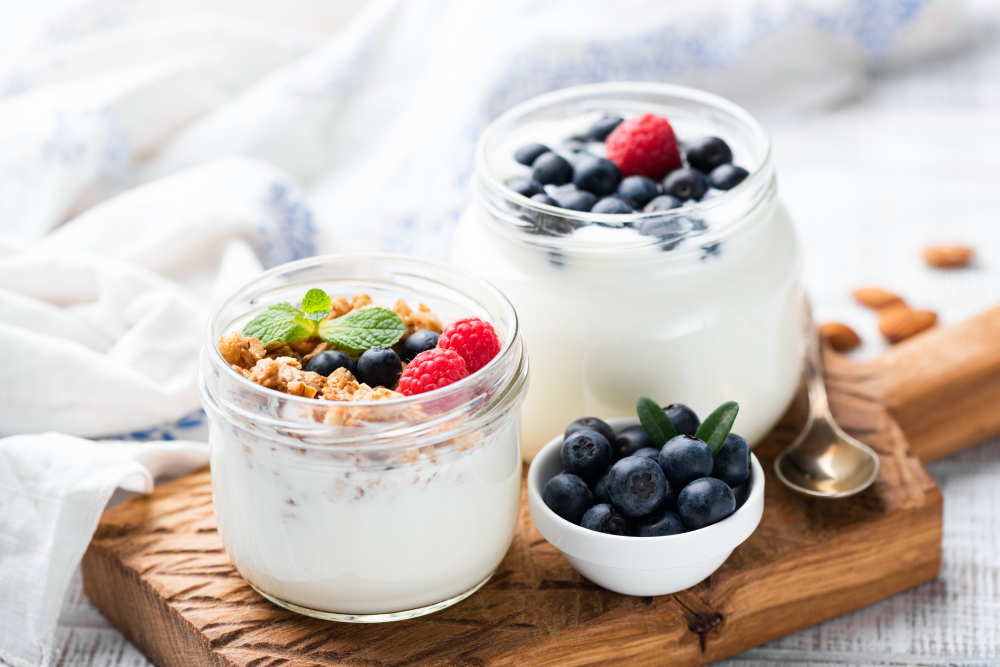
Greek yogurt is rich in protein, particularly casein, a slow-digesting protein that can support muscle repair during sleep. When you combine it with berries, you add a dose of fiber, antioxidants, and natural sweetness. This combination promotes satiety and helps prevent blood sugar spikes, making it an excellent nighttime snack. Berries are also low in calories, so they offer a guilt-free way to satisfy a sweet craving while contributing to metabolic health. The calcium in yogurt may also play a role in fat metabolism, according to some studies, making it a well-rounded choice.
2. Cottage Cheese
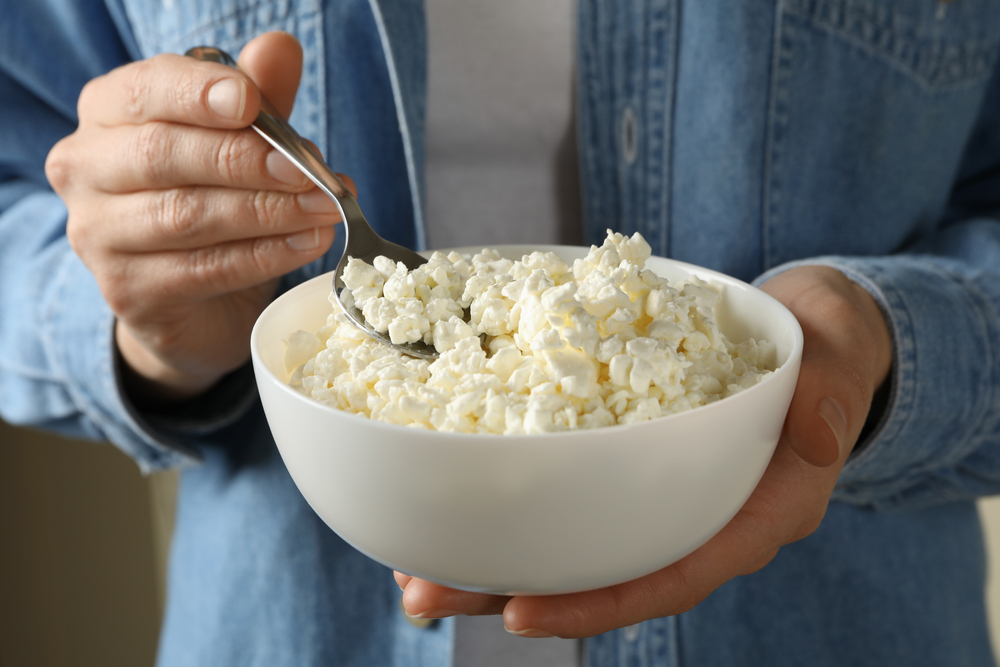
Cottage cheese is another high-protein food that is especially useful before bed. It is packed with casein protein, which digests slowly and feeds your muscles through the night. This can help your body maintain lean muscle mass, which is crucial for keeping your metabolism efficient. Cottage cheese is also a good source of B vitamins, which are involved in energy metabolism. If plain cottage cheese seems bland, you can mix in cinnamon or a few slices of banana for added flavor and nutritional value.
3. A Small Handful of Almonds
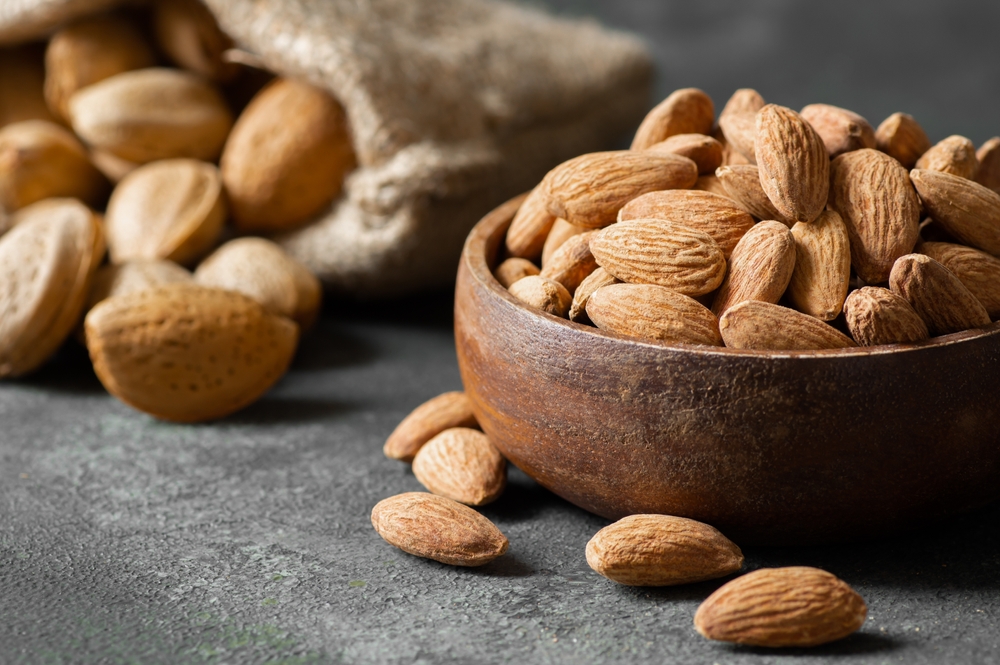
Almonds are an excellent source of healthy fats, protein, and fiber. These nutrients work together to stabilize blood sugar levels and prevent late-night hunger pangs. Almonds also contain magnesium, a mineral that supports muscle and nerve function and is involved in hundreds of metabolic processes. While they are calorie-dense, a small handful, typically about 10 to 15 almonds, can be satisfying without going overboard. Eating them regularly in moderation has been linked to improved metabolic profiles and better weight management.
4. Turkey Slices with Whole Grain Crackers
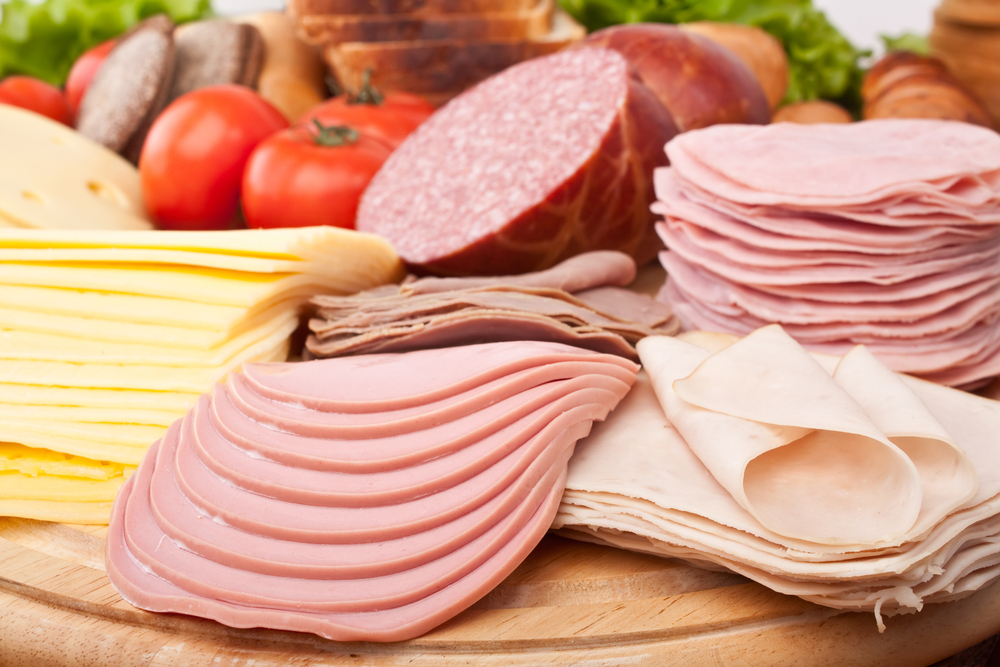
Lean protein like turkey can help keep you full and support overnight muscle recovery. Turkey is also a natural source of tryptophan, an amino acid that supports the production of serotonin and melatonin, which are vital for sleep regulation. Pairing turkey slices with a few whole grain crackers provides a balanced snack that includes complex carbohydrates. These carbs help transport tryptophan into the brain, promoting restful sleep. The fiber in whole grain crackers also supports digestive health and helps maintain steady blood sugar levels.
5. Hard-Boiled Eggs

Eggs are one of the most complete sources of protein, containing all nine essential amino acids. Eating a hard-boiled egg or two before bed can provide your body with a steady supply of nutrients to support overnight repair and recovery. The high protein content keeps you full longer, reducing the risk of waking up hungry. Eggs also contain important vitamins and minerals like choline, vitamin D, and selenium, all of which play roles in metabolic function. Their convenience and versatility make them a go-to option for late-night snacking.
6. Oatmeal with a Splash of Milk
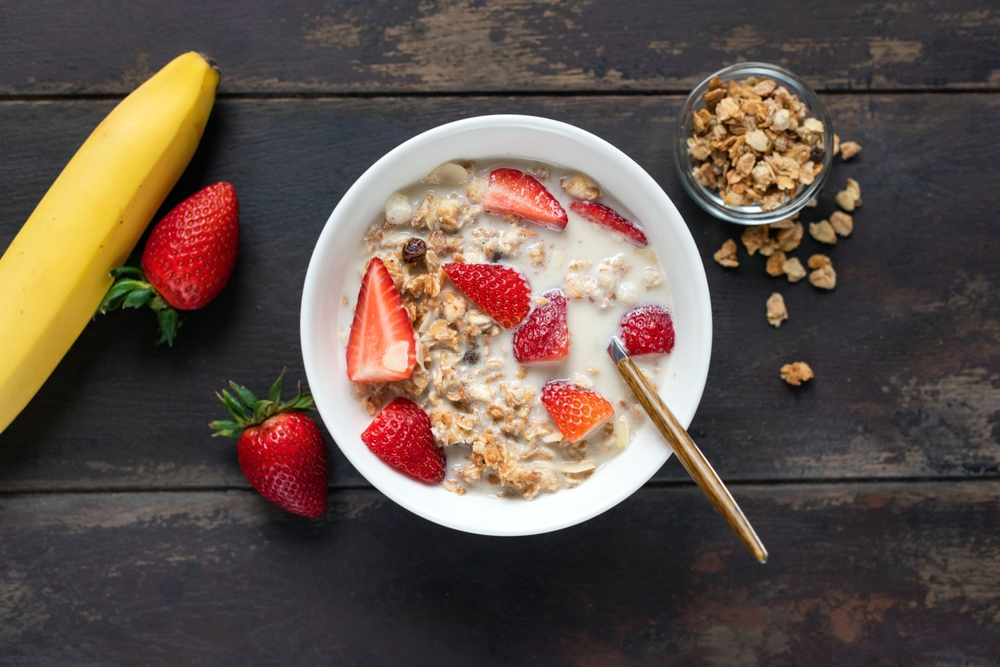
While often considered a breakfast food, oatmeal can also serve as a comforting and metabolically beneficial nighttime snack. It is high in soluble fiber, particularly beta-glucan, which helps lower cholesterol and stabilize blood sugar. The complex carbohydrates in oatmeal promote the release of serotonin, which can support sleep and mood. Adding a splash of milk increases the protein and calcium content of the snack. For added flavor and nutrition, consider stirring in cinnamon or a few chopped nuts.
7. Banana with Peanut Butter
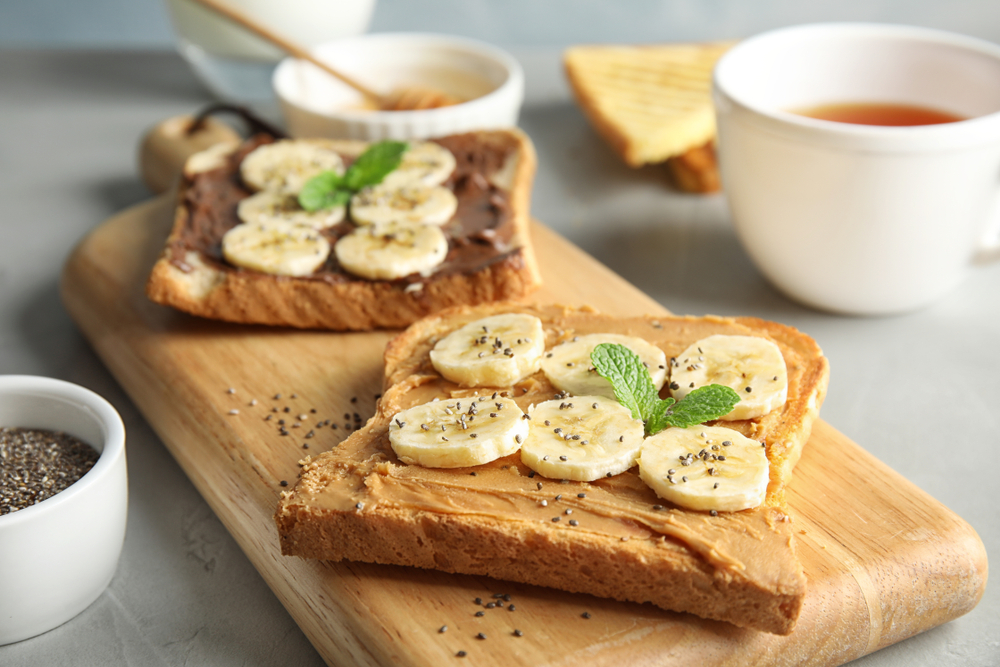
Bananas provide natural sugars, fiber, and potassium, all of which support muscle and nerve function. They also help stimulate the production of serotonin, which your body converts into melatonin to regulate your sleep cycle. Adding a small amount of peanut butter introduces healthy fats and protein, making the snack more satiating and balanced. Just one tablespoon of peanut butter is enough to add richness without excess calories. This combination is not only delicious but also effective in curbing late-night hunger.
8. Chia Pudding
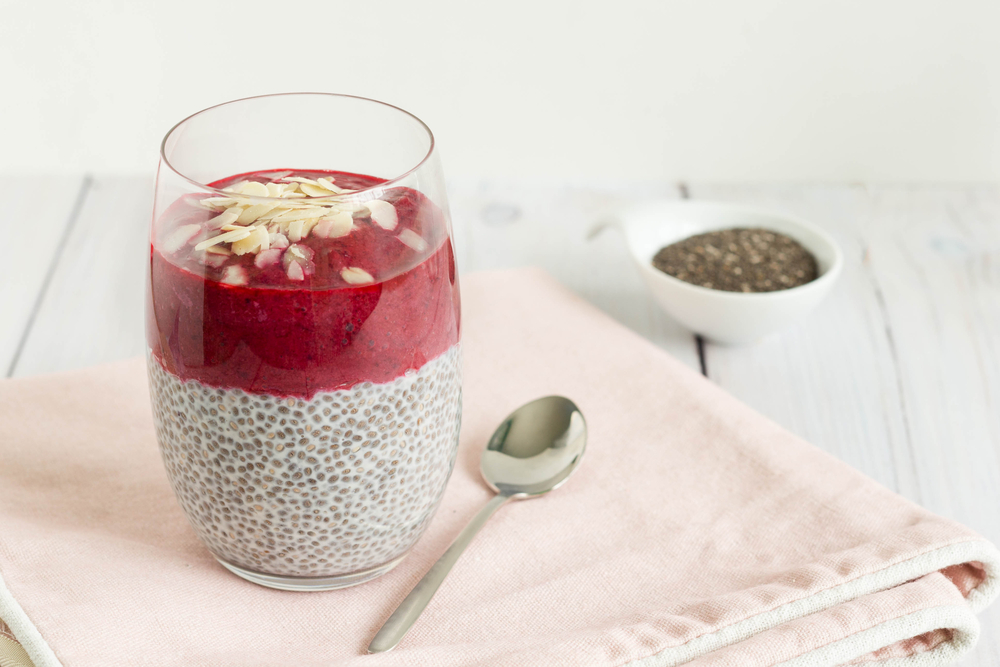
Chia seeds are a nutritional powerhouse, rich in fiber, omega-3 fatty acids, and protein. When soaked in a liquid like almond milk or dairy milk, they expand into a pudding-like texture that makes a satisfying and nutritious snack. The fiber in chia seeds supports digestion and helps maintain stable blood sugar levels, which is crucial for nighttime metabolic balance. Omega-3 fats are also known to play a role in reducing inflammation and supporting cellular energy production. You can enhance the flavor by adding vanilla extract, cocoa powder, or fresh fruit.
Read More: 10 Healthy Habits That Will Help You Stress Less and Live Longer
9. Edamame

Edamame, or young soybeans, is a protein-rich snack that also contains fiber and essential micronutrients like iron, magnesium, and folate. These nutrients contribute to overall metabolic efficiency. The high protein content promotes satiety and helps stabilize blood sugar levels throughout the night. Edamame also contains isoflavones, plant compounds that have been studied for their potential role in regulating metabolism and improving insulin sensitivity. Lightly steamed and seasoned with a touch of sea salt or low-sodium soy sauce, edamame is both tasty and beneficial.
Tips for Healthy Nighttime Snacking

Choosing the right foods is only part of the equation. Portion control is equally important, especially before bed. Late-night snacks should be small, generally around 150 to 300 calories, to avoid digestive discomfort or excess calorie intake. Also, focus on balance. Combining protein, fiber, and healthy fats helps regulate blood sugar and supports metabolic functions more effectively than carbohydrate-heavy snacks alone.
Eating too close to bedtime can interfere with sleep for some people. Ideally, aim to eat your snack at least 30 to 60 minutes before going to bed. This gives your body time to begin digestion and can prevent discomfort or acid reflux.
Hydration is another key factor in metabolism. Sometimes what feels like hunger is actually thirst. If you find yourself craving food late at night, consider drinking a glass of water first to see if the craving subsides.
Conclusion

Late-night snacking does not have to derail your health goals. With the right choices, you can support your metabolism, stay full through the night, and even improve your sleep quality. The key is to select nutrient-dense, balanced options like Greek yogurt with berries, cottage cheese, or edamame. These snacks not only satisfy hunger but also provide your body with the building blocks it needs for overnight repair and metabolic balance.
Rather than fearing food at night, embrace it as an opportunity to nourish your body wisely. Thoughtful snacking can be a powerful tool in supporting both short-term well-being and long-term metabolic health.
Read More: 9 Doctor-Approved Tips for Living a Longer, Healthier Life
Disclaimer: This article was created with AI assistance and edited by a human for accuracy and clarity.
Disclaimer: This information is not intended to be a substitute for professional medical advice, diagnosis or treatment and is for information only. Always seek the advice of your physician or another qualified health provider with any questions about your medical condition and/or current medication. Do not disregard professional medical advice or delay seeking advice or treatment because of something you have read here.

